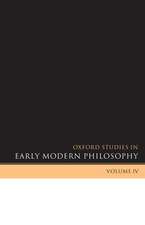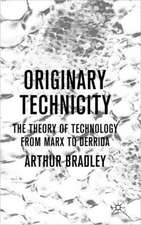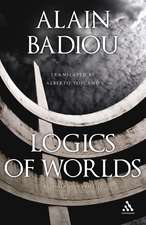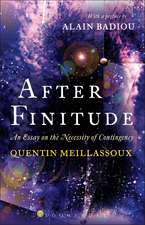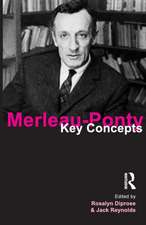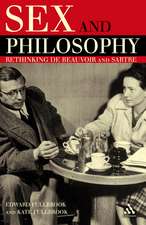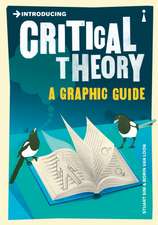The Transient and the Absolute: An Interpretation of the Human Condition and of Human Endeavor: Contributions in Philosophy
Autor Mordecai Roshwalden Limba Engleză Hardback – 29 mar 1999 – vârsta până la 17 ani
Din seria Contributions in Philosophy
- 19%
 Preț: 466.00 lei
Preț: 466.00 lei - 24%
 Preț: 462.37 lei
Preț: 462.37 lei - 24%
 Preț: 362.62 lei
Preț: 362.62 lei - 28%
 Preț: 460.01 lei
Preț: 460.01 lei - 24%
 Preț: 363.46 lei
Preț: 363.46 lei - 27%
 Preț: 438.51 lei
Preț: 438.51 lei - 27%
 Preț: 509.52 lei
Preț: 509.52 lei - 28%
 Preț: 438.00 lei
Preț: 438.00 lei - 24%
 Preț: 461.95 lei
Preț: 461.95 lei - 38%
 Preț: 437.07 lei
Preț: 437.07 lei - 28%
 Preț: 436.04 lei
Preț: 436.04 lei - 28%
 Preț: 437.84 lei
Preț: 437.84 lei - 38%
 Preț: 434.28 lei
Preț: 434.28 lei - 28%
 Preț: 436.22 lei
Preț: 436.22 lei - 24%
 Preț: 461.28 lei
Preț: 461.28 lei - 28%
 Preț: 462.12 lei
Preț: 462.12 lei - 24%
 Preț: 363.98 lei
Preț: 363.98 lei - 28%
 Preț: 437.47 lei
Preț: 437.47 lei - 28%
 Preț: 435.20 lei
Preț: 435.20 lei - 28%
 Preț: 495.02 lei
Preț: 495.02 lei - 38%
 Preț: 438.51 lei
Preț: 438.51 lei - 38%
 Preț: 344.15 lei
Preț: 344.15 lei - 27%
 Preț: 438.84 lei
Preț: 438.84 lei - 38%
 Preț: 345.83 lei
Preț: 345.83 lei - 38%
 Preț: 345.74 lei
Preț: 345.74 lei - 38%
 Preț: 439.17 lei
Preț: 439.17 lei - 38%
 Preț: 435.37 lei
Preț: 435.37 lei - 38%
 Preț: 345.67 lei
Preț: 345.67 lei - 27%
 Preț: 439.69 lei
Preț: 439.69 lei - 28%
 Preț: 437.75 lei
Preț: 437.75 lei - 38%
 Preț: 436.99 lei
Preț: 436.99 lei - 28%
 Preț: 437.40 lei
Preț: 437.40 lei - 27%
 Preț: 438.84 lei
Preț: 438.84 lei - 28%
 Preț: 462.28 lei
Preț: 462.28 lei - 27%
 Preț: 438.51 lei
Preț: 438.51 lei - 28%
 Preț: 462.61 lei
Preț: 462.61 lei - 28%
 Preț: 344.22 lei
Preț: 344.22 lei - 24%
 Preț: 466.07 lei
Preț: 466.07 lei - 24%
 Preț: 366.69 lei
Preț: 366.69 lei - 38%
 Preț: 437.24 lei
Preț: 437.24 lei - 28%
 Preț: 461.00 lei
Preț: 461.00 lei - 27%
 Preț: 364.56 lei
Preț: 364.56 lei - 28%
 Preț: 344.63 lei
Preț: 344.63 lei - 24%
 Preț: 363.13 lei
Preț: 363.13 lei
Preț: 437.67 lei
Preț vechi: 604.15 lei
-28% Nou
Puncte Express: 657
Preț estimativ în valută:
83.75€ • 91.26$ • 70.57£
83.75€ • 91.26$ • 70.57£
Carte tipărită la comandă
Livrare economică 23 aprilie-07 mai
Preluare comenzi: 021 569.72.76
Specificații
ISBN-13: 9780313309366
ISBN-10: 0313309361
Pagini: 208
Dimensiuni: 156 x 235 x 20 mm
Greutate: 0.51 kg
Ediția:New.
Editura: Bloomsbury Publishing
Colecția Praeger
Seria Contributions in Philosophy
Locul publicării:New York, United States
ISBN-10: 0313309361
Pagini: 208
Dimensiuni: 156 x 235 x 20 mm
Greutate: 0.51 kg
Ediția:New.
Editura: Bloomsbury Publishing
Colecția Praeger
Seria Contributions in Philosophy
Locul publicării:New York, United States
Notă biografică
MORDECAI ROSHWALD is Professor Emeritus of Humanities at the University of Minnesota, where he taught for twenty-five years. He has published numerous scholarly articles and several books, including Humanism in Practice (1955), Level Seven (1959), and Modern Technology: The Promise and the Menace (1999).
Cuprins
IntroductionPersonal ExperienceTheoretical QuestioningIndividual ActivityCrucial Changes in LifeReligionPhilosophyThe Order of NatureThe CollectivePolitical AuthorityAesthetic ExpressionConclusionsBibliographyIndex



